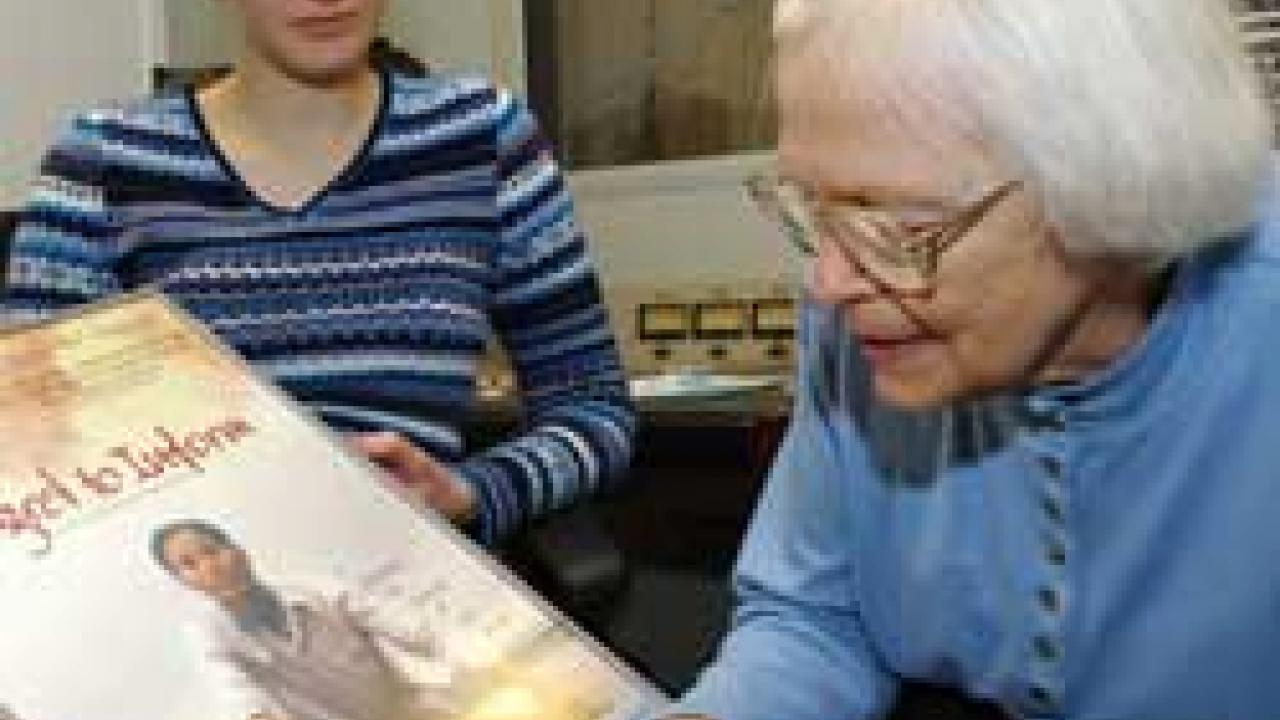This Memorial Day weekend the University of California, Davis, debuts a Web site that chronicles how a group of students are helping preserve Vietnam veterans' war stories while gaining a newfound understanding of the conflict.
For 10 intense weeks this winter, 18 students interviewed veterans for oral histories, recorded their own reactions to what they heard, and studied the cultural significance of popular books and films such as "Backfire" and "Apocalypse Now!"
"The Vietnam War Through New Eyes" at http://www.news.ucdavis.edu/vietnam was launched this week and includes audio histories and written transcripts of the veteran histories, an audio slideshow of the students' reactions to the class, and video and written stories about the class and its interaction with veterans.
At the start of the class, many in Eric Schroeder's Integrated Studies seminar found the American conflict in Vietnam a vague mystery skipped over in high school history classes. They wondered why the mention of a conflict from four decades ago brought haunted expressions on their parents' faces, and why the war was being compared to the one in Iraq today.
By finals, the students had replaced spotty concepts with an in-depth understanding of the time and the place. Most important, they met real veterans who brought history home to the classroom.
One drizzly winter day, the students were focused on three classroom visitors, starting with former machine gunner Michael Kelley of Sacramento, who described his wet feet and the leeches dropping from trees into his hair.
"You want to know what it was like in 'Nam? Go out and lay down on the Quad in this rain," Kelley said. "It never stopped raining and you never got dry."
Former U.S. Special Forces intelligence officer John Nesbitt of Sacramento said after nearly three years of patrols, infiltration missions and living among Hmong and Montanards, he knew that his luck had run out and it was time to leave.
And Chuck Lewis of Martinez, a former platoon sergeant, remembered when he was ready to stop killing.
"I had a sense that I had done enough shooting and it wasn't doing any good," Lewis said. "They weren't going to give up their freedom."
Despite the tales of combat, friends' deaths and painful transitions to civilian life, the three veterans viewed their war experience as the most vital time of their life -- and told the class that they supported the military. That came as a revelation to some students.
"I was most struck by the responses the veterans gave to my question of whether they felt that young people today should have the same experience that they did," Scott Homrighausen, 19, of Yorba Linda, wrote in a class journal. "It seemed they unanimously agreed that young people today should not have to fight in combat like they did. However, they all agreed that young people should participate in basic training and serving in the military."
Homrighausen interviewed machine gunner Kelley for an assignment. His interview, with the others from the class, will be part of UC Davis' new oral-history archive in the Pacific Regional Humanities Institute, located on the UC Davis campus. Last fall the institute officially joined the Library of Congress' American Folklife Center as a regional partner for the Veterans History Project. Its role is to collect and archive video and audio tapes and create hard-copy transcripts, all accessible to the public.
Although the public is encouraged to contribute oral histories on a variety of topics beyond veterans, the center is also counting on efforts from UC Davis classes such as Schroeder's to fill its archival shelves, says the project director, Jan Goggans.
By recording veteran stories, UC Davis students are creating a public record of recent history for others and actively engaging in a rich learning experience, says Schroeder, who has discovered that oral history interviews are a powerful teaching tool.
Chris Knight, 19, of Glen Ellen, agrees with Schroeder that hearing people talk about how an era affected them creates an absorbing classroom experience.
"Part of my feelings may have to do with the subject matter, which I find so moving and important that I am inherently interested in it. But even war movies do little justice to conflict, as I feel videos and books cannot capture the human element," he says.
"To my mind, the veterans were more than teachers, they were treasures."
Media Resources
Susanne Rockwell, Web and new media editor, (530) 752-2542, sgrockwell@ucdavis.edu
Eric Schroeder, English, (510) 548-2724, ejschroeder@ucdavis.edu
John Nesbitt, Sacramento Veterans Resource Center, (916) 393-8387, jnesbitt@vietvets.org
Helen Cunningham, Freshman student from class, (530) 754-3850, hkcunningham@ucdavis.edu
